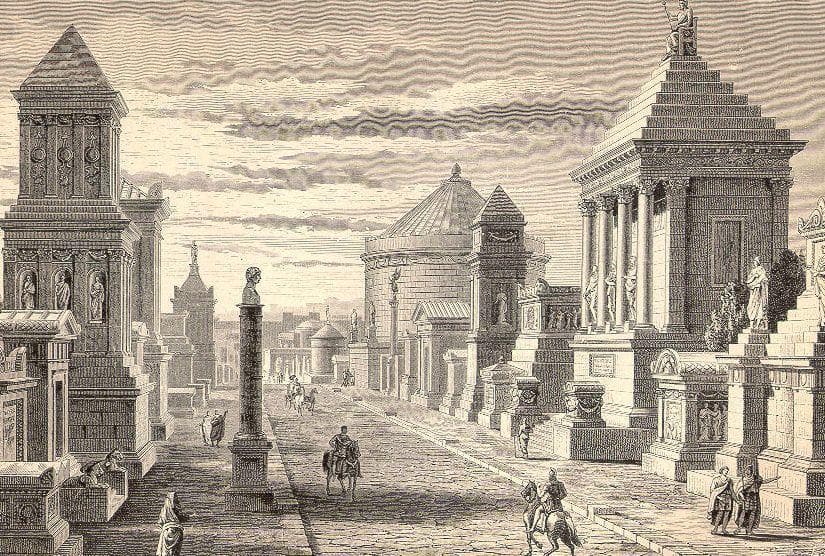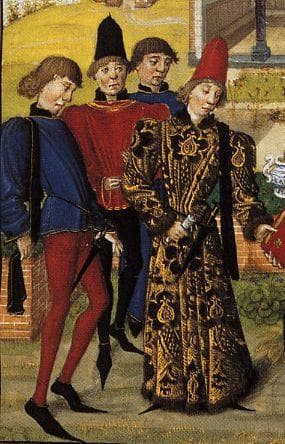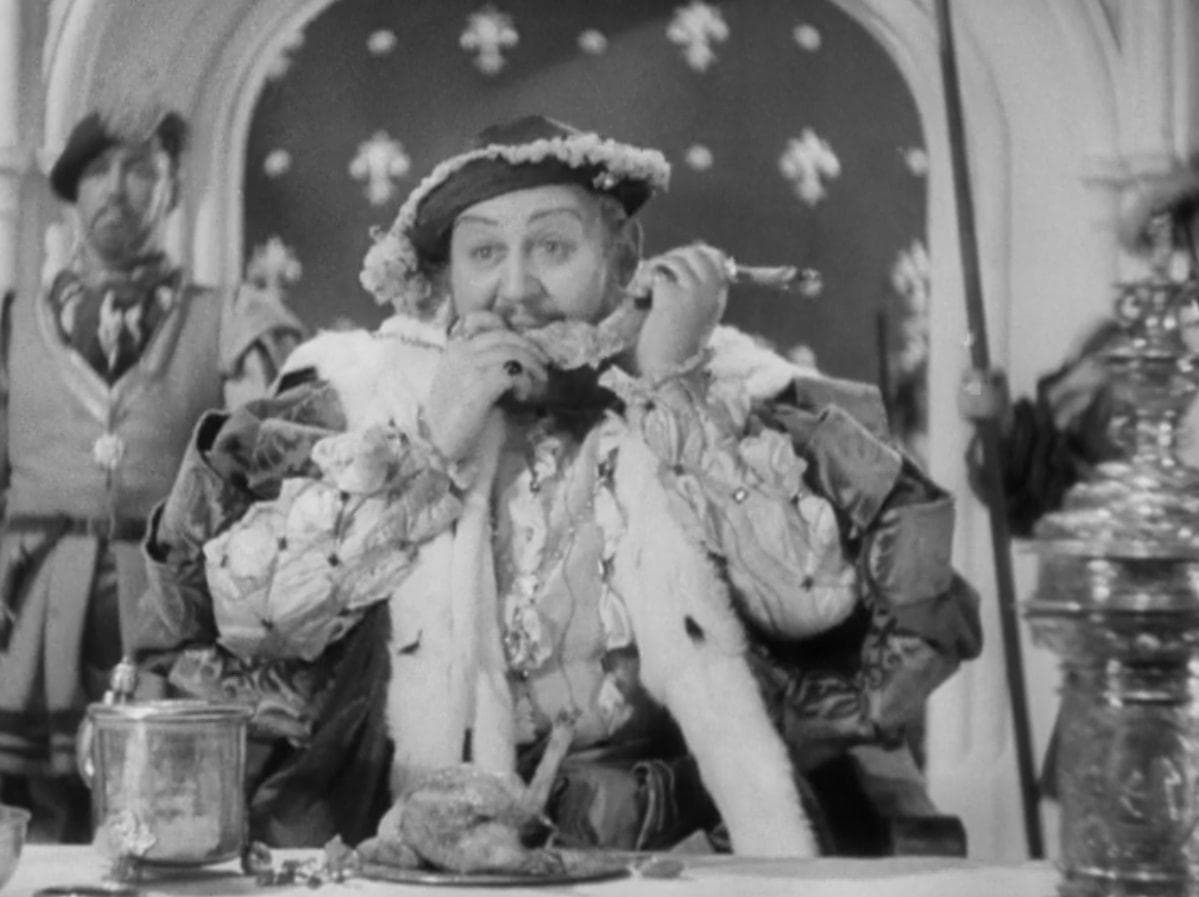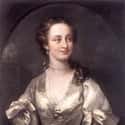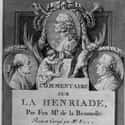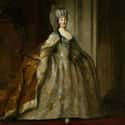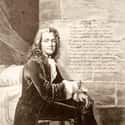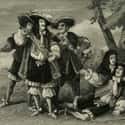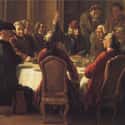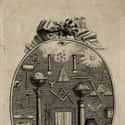-
(#1) He Joked About The French Regent's Penchant For Incest And Paid For It With Jail Time
One of Voltaire's first brushes with notoriety occurred in 1717, when the French government was run by the Duc d'Orléans. At the time, Orléans was ruling as a regent for his kinsman, the very young child-king Louis XV. Voltaire penned verses that tried the government's patience, but he things took a step too far when he mocked the Duc and accused him of engaging in an incestuous relationship with his daughter. Needless to say, the Duc did not respond well to Voltaire's jabs, and the satirist was banished from Paris and imprisoned in the Bastille. The first of two stints in prison for the philosopher poet.
-
(#2) He Was A Man Of Many Love Affairs, Including One With His Own Niece
Voltaire - notorious for his passionate and scandalous love affairs - once fell head over heels for a young widow. Notably, this bereaved lass also happened to be his niece, Marie Louise Denis (née Mignot). Madame Denis was the daughter of Voltaire's older sister, Catherine. She was pretty, full of life, and bright, even harboring her own writerly ambitions. Voltaire claimed a not-so-platonic love for the young woman - he even wrote amorous letters to her in Italian, so that prying servants could not be privy to his physical attraction to her. Their romance lasted for decades. Denis even moved in with Voltaire, serving as his housekeeper and companion. Whether or not their love was ever consummated, it's clear from his letters that Voltaire wanted it to be.
-
(#3) He Wrote A Book So Controversial That Copies Had To Be Smuggled Into Paris
In the early 1720s, Voltaire was at work on an audacious project: an epic historical poem about Henry VI. Henry VI was a French king who had succeeded the throne as a Protestant outsider from Navarre. Voltaire's poem was a brilliantly veiled critique of the Catholic Church and the problems of fanatic religion (which he obviously detested).
However, due to censors, Voltaire couldn't find a publisher in Paris for his poem. So he found other means. He published it in Rouen and then smuggled copies into the city. It became successful, even attracting the admiration of Queen Marie herself.
-
(#4) He Counted Catherine The Great Among His Many Fangirls
Voltaire maintained strings of correspondence with some of the most important figures of 18th-century Europe - letters passed between Voltaire and Rousseau, Frederick the Great, and even Madame du Barry, the chief royal mistress of Louis XV.
Perhaps none was as fascinating as his correspondence with Catherine the Great of Russia. Catherine had a sharp mind and was fascinated with the Enlightenment, like many rulers in the 18th century. From 1768 to 1777, the Empress of Russia exchanged around 26 letters with the French philosopher.
For his part, Voltaire praised Catherine routinely, and it seems as if he had a little bit of a crush on her. He even teased her that he was "jilted" by her attachment to Diderot, another French philosopher. Not only did he curiously commend his "Star of the North" on her autocratic style, he actually had a portrait of her hanging in front of his bed.
-
(#5) He Adopted A Pseudonym To Better Stick It To The Man
The man now known exclusively as "Voltaire" was born François-Marie Arouet on November 21, 1694. He only adopted the name "Voltaire" in 1718, after being imprisoned in the Bastille for criticizing the French Régent. So, perhaps he took on the moniker to be able to continue to critique under cover of a different name. Some scholars think that the rejection of his birth name and creation of a pen name signal his deep rejection of his father's (and soceity's) values. Exactly why he chose the name "Voltaire" remains a mystery; though scholars have pointed out it is an anagram of the Latin spelling of his name "Arouet Le Jeune": "Arovet LI."
-
(#6) He Challenged A French Nobleman To A Duel But Was Exiled Before He Could Cross Swords
Voltaire's wit and beliefs always attracted detractors. In 1726, Guy-Auguste, Chevalier de Rohan-Chabot, a vapid young nobleman, mocked Voltaire for adopting a nom-de-plume. Voltaire's response was characteristically witty and sharp: he claimed that he was the first of his name, while Rohan-Chabot was the very last of his.
Unsurprisingly, Rohan-Chabot overreacted by hiring men to beat up Voltaire, while Rohan-Chabot himself watched the event from afar and then called off his men. Voltaire would not let it go. He immediately brandished his sword at Rohan-Chabot and demanded satisfaction for the young chevalier's brazen attacks. But instead of meeting Voltaire at the dueling ground, Rohan-Chabot turned to his relatives for help, and they promptly had Voltaire imprisoned.
Voltaire, who had already been to prison, was not looking forward to yet another jail term. So he pleaded with officials to transmute his sentence. Instead of serving at the Bastille, Voltaire was exiled from France. England became his prison, and it ignited a rich period of intellectual exploration for Voltaire.
-
(#7) He Scammed The Lottery And Made A Fortune
In 1729, Voltaire's friend - the brilliant mathematician Charles Marie de La Condamine - came to Volatire with a get-rich-quick scheme that actually worked. Paris was holding lotteries in several districts throughout the city. La Condamine pointed out that the total price of all the tickets in each district was a lot less than the prize winnings. So the plan was simple: they joined forces with a small group of friends to buy up every last ticket in each district, winning every time. They did this over the course of several months, and Voltaire made millions.
What did Voltaire do with all of his winnings? He did what any criminal mastermind would do - he participated in a whole host of business opportunities that would be considered "insider trading" by today's standards and exponentially increased his wealth.
-
(#8) He Was So Popular, He Was Literally Crowned For It
By the end of his life, Voltaire had become a bona fide international rockstar - a status helped in no small part by his reputation as an intellectual badboy who defied convention. He straddled many different worlds, taking up correspondences with royals, political theorists, scientists, and actors and actress. He even came to be known as the "Innkeeper of Europe," since everybody who was anyone stopped at Voltaire's estate at Ferney to pay their respect to a towering legend - his guests included Edward Gibbon, Casanova, and James Boswell.
In 1778, Voltaire came to Paris to see the premiere of his new play Irene. Parisians rapturously welcomed him home - on the day after he arrived, more than 300 people stopped by to see him and give their warm regards. On March 30, 1778, at the premiere of Irene, Voltaire was literally crowned in his theater box before his enthusiastic audience.
-
(#9) He Was Wildly Contradictory In His Views On Religious And Racial Tolerance
Voltaire gained fame for his passionate defense of religious tolerance. Yet, scholars claim that Voltaire looked at other religions with a degree of cultural superiority. He joked negatively about Jews and even viewed Islam as a barbaric religion.
Voltaire, like many in the Enlightenment, was a critic of slavery throughout European empires. Hover, his disgust of slavery didn't mean that he thought all men and women were on equal footing - he was also racist who traded in anti-black racial stereotypes in his writings.
-
(#10) He Became A Freemason After His Buddy Benjamin Franklin Convinced Him To
Benjamin Franklin - one of the most celebrated figures in U.S. history - was an enthusiastic and sharp Enlightenment mind. He wrote constantly to important European figures, conversing on everything from family matters to philosophical debates. Among the intellectual figures of the day, Voltaire was on Franklin's reading list. So when Franklin was sent as an ambassador to France from the new American nation in 1776, he made a point of grandly meeting one of the leading French intellectuals of the day.
On one of his meetings with Voltaire, Franklin actually convinced him to become a freemason. In the 18th century, well-to-do men on both sides of the Atlantic were becoming obsessed with the Freemasons, a secret society that counted many Founding Fathers in its ranks. So it should be no surprise that Benjamin Franklin, himself a Grand Master, was Voltaire's entry into the brotherhood.
-
(#11) He Lived With His Lover AND Her Husband In A Grand Château
Though he never married, Voltaire had many lovers throughout his life. Perhaps the most productive was his affair with Émilie du Châtelet - and she was already married to someone else. She was a brilliant woman of the Enlightenment herself, as she supported women's education and was gifted in mathematics, science, and even literature. Among her accomplishments was a translation of Sir Isaac Newton's Principia Mathematica.
Voltaire's affair with du Châtelet began in 1733, and he remained devoted to her for 16 years. Her husband was a French marquis, and Voltaire often stayed at the château Cirey-Sur-Blaise, where he and du Châtelet maintained their physical and intellectual affair.
His love affair with Madame du Châtelet did not have a happy ending, however. In 1748, she began an affair with a young poet, who abandoned a pregnant du Châtelet by 1749. She turned to Voltaire in her moment of crisis, and he even helped woo her old husband back into her marriage bed so that the child would appear legitimate. But it was all for nothing - du Châtelet died soon after giving birth to a daughter, and the baby followed.
The death of Émilie du Châtelet was one of the great tragedies of Voltaire's life.
-
(#12) He Became An Intellectual Bad Boy When Copies Of His Book Were Burned In Paris
Voltaire lived in exile in England for several years after he attempted to duel a young, French chevalier. However, his time in England proved to be intellectually inspiring. He admired so-called "British liberties" and the seeming religious tolerance he found there. Though Britain in the 18th century still hadn't granted political rights to Catholics or Jews, it seemed to Voltaire a more open and tolerant society than France and its deep Catholicism.
In 1734, he expanded the original Letters Concerning the English Nation into the text Lettres Philosophiques, which provided a more in-depth reading of English philosophy. The book was clear in its admiration of British values and its veiled critique of France's. Great Britain was France's ancient enemy, and so many in France railed against both Voltaire's criticism of French government, society, and religion and his celebration of their sworn enemy.
Though he never received an official permit to publish the text, he published it anyway. It caused a huge sensation: copies of the book were publicly burned by the French royal hangman. The outcry from government circles was so fierce that Voltaire had to flee Paris.
New Random Displays Display All By Ranking
About This Tool
Voltaire was a famous writer and philosopher of the French Enlightenment in the 18th century. He was an incredibly prolific writer in history who advocates civil liberties and equality and criticizes major institutions such as the Catholic Church. After Voltaire began his writing career because his favorite topic was criticism of the government and satire of politicians, he quickly fell into trouble, he has been arrested many times and once exiled to England.
Voltaire left a complicated legacy. For example, he is one of the origins of anti-Semitism, and he agrees with the views of anti-slavery and anti-monarchy. Voltaire's philosophy and literature are still influential after several centuries. The random tool shares 12 fun facts about this greatest thinker and writer in history.
Our data comes from Ranker, If you want to participate in the ranking of items displayed on this page, please click here.

